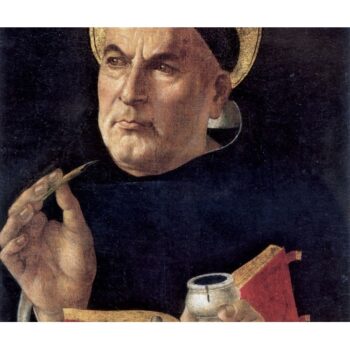Rene Descartes (1596-1650) is generally viewed as the “Father of Modern Philosophy.” He both leads the rejection of traditional Scholastic thought and develops a mechanistic philosophy to replace the teleological thinking of the previous era. He is an extremely important mathematician, who lays the foundations of analytic algebra and is known for the Cartesian coordinates in geometry. He makes contributions to natural philosophy, for example codeveloping the sine law of refraction. He develops a view of the world as a mechanical object, which operates according to simple laws, discoverable by reason. He offers proofs for God’s existence and provides metaphysical arguments that the world is comprised of two fundamental substances, non-thinking matter, viewed as mathematically measurable extension, and thinking soul. He develops a method of philosophy based on rational argument.
Descartes most important works in metaphysics and epistemology are his Discourse on Method and Meditations on First Philosophy. His Passions of the Soul is an important early work on emotions, which contains his views on ethics. His work provides the foundation for the Rationalist epistemology further developed by Gottfried Leibniz and Baruch Spinoza.
Descartes was born in La Haye, France, near Tours, which has in the meantime been renamed Descartes, France! He eventually studied for six years at the Jesuit College in Le Fleche. He remained a Catholic his entire life, despite developing a philosophy that radically questioned traditional Catholic views. (The extent to which the pressures of his age contributed to his embracing this faith tradition, if only for political purposes, is of course under discussion.)
Descartes Criticism of the Aristotelian and Scholastic Traditions and His Mechanical Worldview
Descartes’ studies familiarized him with the traditional themes of Scholasticism, but left him deeply unsatisfied. In his own writings he strongly took exception to the Medieval traditions of philosophy based in Aristotle. In the Discourse on Method he argues against the traditional Aristotelian substance metaphysics which views the world as comprised of diverse natural substances that have natural ends or goals — that is, he rejects the study of natural objects in terms of their final causes, their teleology. In place of this, Descartes erects a philosophical dualism that maintains that there are only two fundamental substances — matter and soul. The objects of the world are not investigated individually but as part of the fundamental plenum, subject to physical laws. Influenced by his readings of the Ancient atomist philosopher, Democritus, he comes to view the world as comprised of fundamental particles, atoms, extended in space. They interacted with one another according to laws that we, as thinking substance, can come to understand and measure mathematically. The focus of his learning thus isn’t to come to understand the traditional essences of objects emphasized in Aristotelian philosophy. Instead it is to understand mechanical laws governing the interconnection between atoms in space. Descartes provides a foundation for modern physics — the modern atomic view of the cosmos.
Though Descartes doesn’t have the systemic breadth of Plato, Aristotle, or the later German philosophers Kant and Hegel, he does from early on envisage the various interrelationships of disciplines within philosophy. He describes the architectonic of his philosophy with the analogy of a tree and its branches:
Thus the whole of philosophy is like a tree. The roots are metaphysics, the trunk is physics, and the branches emerging from the trunk are all the other sciences, which may be reduced to three principal ones, namely medicine, mechanics and morals. By “morals” I understand the highest and most perfect moral system, which presupposes a complete knowledge of the other sciences and is the ultimate level of wisdom. (9B:14)
Though Descartes goes on to write about human agency in some texts, his primary philosophic legacy is the result of his dualism and emphasis on the human subject, his reframing of matter as extension that can be investigated without reference to the teleology or purposes of particular objects, and his method. We focus on these aspects of his legacy.
Descartes Dualism
The Scholastic philosophers of Descartes’ time also accepted a view of soul already developed in Aristotle. Specifically, they thought that in addition to the human soul, there was vegetive and animal soul, responsible for the fundamental powers of vegetative and animal life. Descartes represents a fundamental shift in this view as well. In contrast to Aristotle, Descartes partitions the world into the two basic substances earlier mentioned: matter and soul. But he understands this soul differently than his Scholastic contemporaries. Vegetative and animal life is no longer thought to have soul that is responsible for its powers. In this world, only humans have soul. This soul accounts for human thought and human moral value. The human soul is an eternal and simple substance. Humans are, as material, subject to the laws of the material world, and much of human life can be accounted for in material terms. For example, human passions largely work mechanically. Yet given the powers of the soul, as humans we have some ability to free ourselves from attachments to mechanically produced pleasures and pains.
In the Cartesian worldview, the cosmos as a whole is considered a mechanical object. It operates according to mechanical laws that we should aim to understand. One result of this is that we are not seen to have obligations to the natural world. Some criticisms of this are taken up in Section Four.
Proceed to the next section, Section Two.
